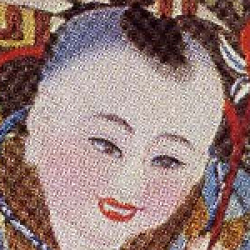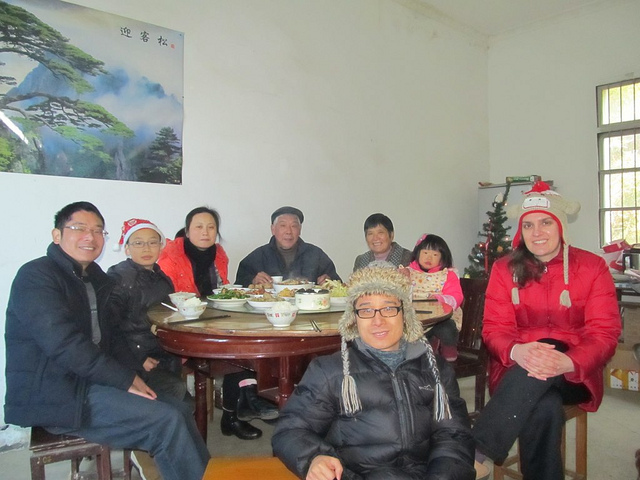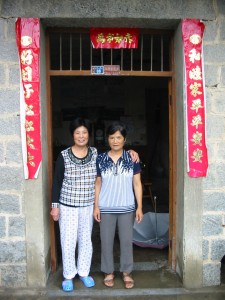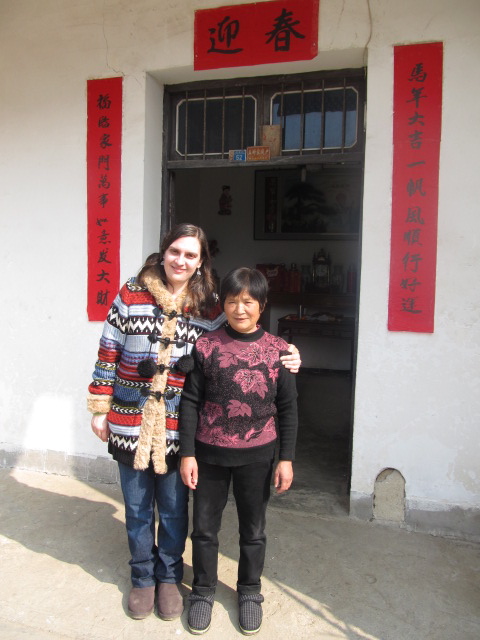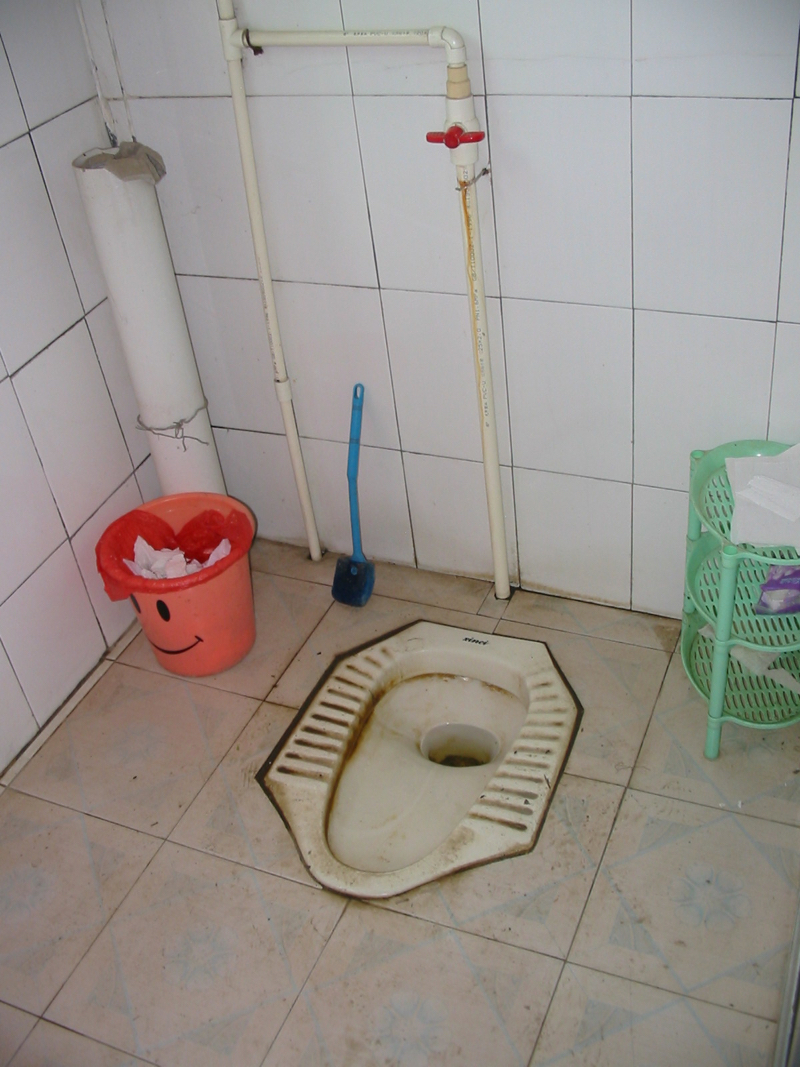(NOTE: This is NOT my only post on giving gifts. Before making your final purchase, I recommend visiting my Holiday Gift Roundup Post, where I’ve collected all the links to my gift-giving advice in one place.)
I thought I couldn’t go wrong with the American ginseng root. My coworker Grace — a Chinese girl who doted over me like a mother, despite the fact that she was a few years younger than me — had helped me pick it out. “Her parents will love this,” said Grace as she handed the package to me. The ginseng was displayed in red and gold foil packaging with a matching bag. It was elegant and auspicious — surely the perfect gift for the parents of Mandy, my Chinese tutor who invited me to her home to spend the Chinese New Year in 2002.
But then, days after my arrival at Mandy’s house, I went with her family to visit her grandma and grandpa. There was Mandy’s mother carrying a surprisingly family ginseng package. Wow, they have the same ginseng here in her city, I thought. Until it hit me — Mandy’s mother was re-gifting my gift to her in-laws, right before my eyes. It turns out, the ginseng made them feel too old.
Ouch.
Gift giving has been a lot less painful since I married a Chinese man. I know the basics (avoid white, don’t give clocks, etc.). And I’ve bought more business gifts (think pens and bookmarks) than I’d care to write about.
But knowing what not to get doesn’t get the shopping for your Chinese family done.
So, I’d like to share how I get my shopping done — with recommendations for gifts for the Chinese family.
(NOTE: I call this a “Modest Guide” because I couldn’t begin to cover every single gift possibility — or, for that matter, every single region of China! But if I can help you, then this post was worth it.)
Any adult in your Chinese family:
Fruit baskets. This is my go-to choice whenever I have NO idea what to get! In China, fruit baskets are always sure to please, whoever you’re buying for. Almost any large supermarket in China will have fruit baskets on sale. See my post 4 Tips for Giving Gift Baskets in China for guidance on fruit baskets and other gift baskets.
(P.S.: If you’d like to send one to China from overseas, make it easy by purchasing from Gift Baskets Overseas. Disclosure — I’m an affiliate for this company.)
Snacks: Western-style pastries, such as sweet rolls or sweet croissants, are a nice treat. Don’t bother bringing them from overseas if you’re coming in to visit; I have an easier time finding these in China than traditional Chinese pastries. Visit vendors in the food court of a major shopping center (Bread Talk is one to try), or try supermarkets such as Carrefour, Wumei and Hualian.
Most Chinese love local specialty foods (土特产) — especially if you’re visiting them after travels around China, or live in a Chinese city far from them. For example, my husband’s hometown makes a great smoked tofu, and I give this gift to people of all ages, all over China. Many come in gift boxes available in the supermarkets, or from specialty food vendors (often located in the basements of malls or shopping centers)
You can also bring local specialty foods from your country too, provided they don’t give you too many headaches with airport security. Just don’t bring them your country’s chocolate in the summer — unless you want to present them with puddles instead of presents.
Remember, if your recipient is more elderly: keep it soft. Grandma and grandpa may have a lot of love for you, but (at least for mine) not so many teeth.
For the younger set, reach for some more sophisticated — and crunchier — choices, from Starbucks products to specialty chocolates.
(If you’re interesting in sending a sweet gift basket over to China, head over to Gift Baskets Overseas. And, as a disclosure, I’m an affiliate.)
Chinese tea: Premium teas — especially those from outside the recipient’s hometown — make great gifts for people of all ages. They often come in gorgeous containers, with matching bags. Best place to buy is a teahouse or tea store in China, such as Tenfu’s tea or the Huangshan tea company.
Chinese Grandparents (外婆,外公,爷爷,奶奶)
Chinese traditional herbal medicines: Deep in every Chinese supermarket is an aisle almost as fascinating as a trip to the carnival. Lamb’s placenta. Spirulina. Royal jelly. Swallow spit. Nutritional wines. All packaged in boxes too beautiful to throw away — a forest scene from a scroll painting in red and gold foil; a Qing-dynasty emperor perched silently on his throne; traditional Chinese script from a classic book.
There’s nothing that says “filial” quite like these nutritious herbal medicines and supplements. Just make sure you’re choose a healthful and effective one, instead of the fake supplements my father-in-law took. Buy from a large, established supermarket such as Carrefour, Wumei or Hualian.
Multivitamins and supplements: These score high on the “filial” meter. They also usually come with names in English — helpful for any foreigner dazed and confused by Lamb’s placenta or royal jelly. You don’t even need to buy them in your home country either. My preferred choice of vitamins in China comes from the brand By-Health (汤臣倍健) — you can purchase them online on Taobao and also find them in most major supermarkets.
(Avoid): Clothing: This summer, my husband and I made the mistake of buying bright orange college T-shirts and sweatshirts for grandma and grandpa. “Why did you waste your money?” said grandma. While she usually says that when we give her any gift, we probably did waste our money on these shirts.
Seniors in China don’t wear clothing outside of the indigo-gray-black-brown spectrum. Clothing might work if you stick to super-drab colors. But why bother? Chances are, grandma and grandpa will find the clothing’s style too strange for them anyway.
Chinese Parents (老爸,老妈 )/Chinese Brother-in-Law or Chinese Sister-in-Law
Gifts for Chinese parents depend on their age. Are they retired? Over 55? See my recommendations for Chinese Grandparents.
For younger Chinese parents (or a Chinese brother-in-law/Chinese sister-in-law), here are some ideas:
Bath and body products: Luxurious lotions and perfumes for her; cologne for him. Either way, you can’t go wrong with these gifts. Many are available in China — Watson’s or duty-free stores — but your family may love something special from abroad. My brother-in-law and sister-in-law loved the Bath and Body Works cologne and perfume we bought them a few years ago.
Clothing: T-shirts, sweatshirts and baseball caps from your local university or sports team work great for men, and just about any color is fine. But don’t bother for the ladies. I’ve yet to find the same ultra-feminine fashions in the US.
Books: Foreign language learners will love a good read. The choice depends on their interests and language level. Two I might recommend for advanced English learners are The English Fluency Formula and
Young Chinese Children
I only have one 8-year-old nephew, and very little experience giving gifts to Chinese children for the holidays. But I stick to one of three choices: toys, a special sweet snack or pastry, or a hongbao. The hongbao is a red envelope filled with an auspicious amount of money, given to Chinese children during Chinese New Year.
What about you? What gifts do you usually give to your Chinese family? What gifts have been a hit — or a miss?
P.S.: Don’t forget — please also see my Holiday Gifts Roundup Post for more advice on gift-giving. In particular, have a look at 7 Great Chinese New Year Gifts Sure to Impress Friends, Family and Coworkers as well as Gifts to Buy Abroad for Chinese Family and Relatives.
P.P.S: Still stumped? I’ve created a hand-picked selection below of gift baskets to China from Gift Baskets Overseas sure to please most any Chinese friend, family member or colleague. Just click, buy and let Gift Baskets Overseas take care of the rest! (Disclosure — I’m an affiliate for Gift Baskets Overseas.)
